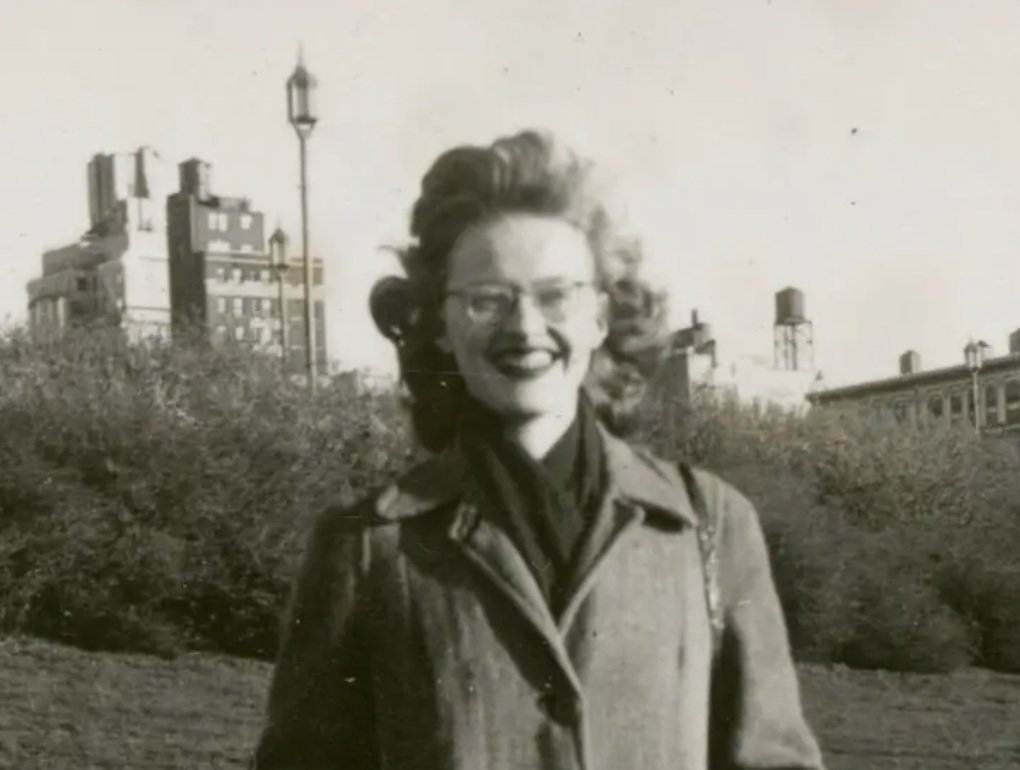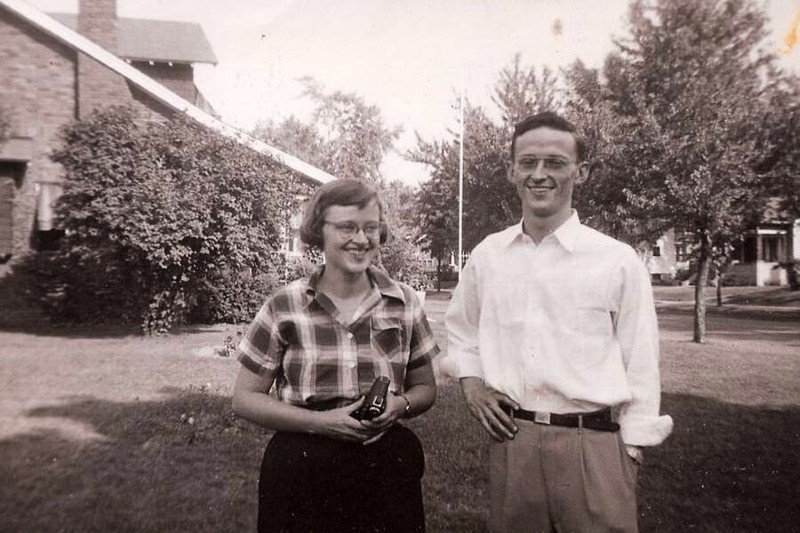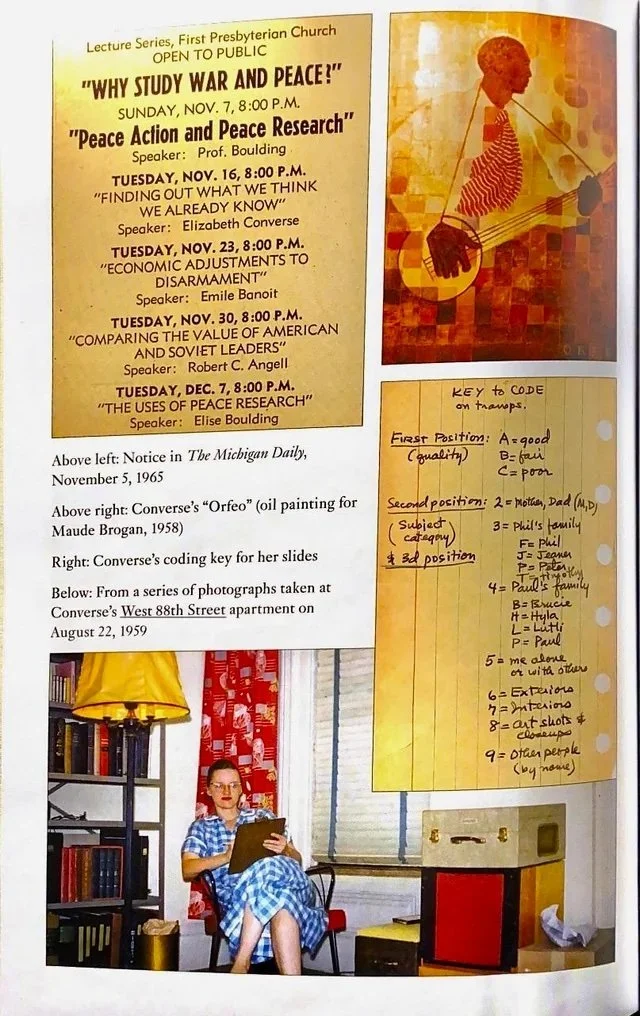Elizabeth Eaton (Connie) Converse (1924 - 1974)
“Human society fascinates me and awes me and fills me with grief and joy; I just can’t find my place to plug into it.””
Connie Converse
Elizabeth Eaton Converse was born in Laconia, New Hampshire, in 1924. (See Connie in the Converse family tree here.) She grew up in Concord, NH, with brothers Philip and Paul, father Ernest, a Baptist minister, and mother Evelyn. She attended Concord High School, where she was valedictorian and won eight academic awards. She was awarded a full academic scholarship to Mount Holyoke College in Massachusetts, but after two years' study, she left the College and moved to New York City to pursue her dream of becoming a writer.
During the 1950s she worked for the Academy Photo Offset printing house in New York's Flatiron District and lived in Greenwich Village. She started calling herself Connie, a nickname she acquired in New York. She began writing songs and performing them for friends, accompanying herself on guitar.
Connie Converse in Riverside Park, New York City, 1946.
Connie Converse, Christmas in Schenectady 1955.jpg
“It takes a great journalist to find the stories behind the mysteries we carry. Howard Fishman has done that with his superb examination of Connie Converse ...in To Anyone Who Ever Asks.”
Connie Converse singing at Gene Deitch’s home in 1954. Courtesy of Kim Deitch.
Connie Converse
Connie with her brother Philip.
Connie Converse with nephew Tim Converse
Her music came to the attention of animator and amateur recording engineer Gene Deitch, who had made tape recordings of artists like John Lee Hooker and Pete Seeger in the 1940s. Deitch made a number of tape recordings of Converse in the kitchen of his house in Hastings-on-Hudson in the mid-1950s. But opportunities were limited and Connie failed to attract any commercial interest in her music. Her only public performance was a brief television appearance in 1954 on "The Morning Show" on CBS with Walter Cronkite, which Deitch helped to arrange.
In 1961, discouraged by her inability to launch a music career, she left New York for Ann Arbor, Michigan, where her brother Philip was a noted professor of political science at the University of Michigan. She worked in a secretarial job, and then as Managing Editor of the Journal of Conflict Resolution from 1963. Her only musical involvement was playing for friends and family.
At the piano in the Harlem Apartment, June 1958
Christmas in Schenectady, NY, 1955
Connie Converse in 1971-72.
By 1973, Connie was burned out, drinking and smoking heavily, and deeply depressed. After she suffered a nervous breakdown, her colleagues and friends pooled their money to finance a six-month trip to England for her. The journal, which meant so much to her, had left Michigan for Yale at the end of 1972, after being "auctioned off" without her knowledge. She was facing the need for major surgery for a fibroid tumor, which would preclude her ever having children. In August 1974, she wrote a series of letters to her family and friends, talking about her intention to make a new life somewhere else. By the time the letters were delivered, she had packed her belongings in her Volkswagen Beetle and driven away, never to be heard from again.
In January 2004, Gene Deitch -- by then 80 years old and living in Prague since 1961 -- was invited by New York music historian David Garland to appear on his radio show Spinning on Air. Deitch played some of his own recordings, including one of Connie's songs, "One by One". Two of Garland's listeners, Dan Dzula and David Herman, were inspired to try and put together an album of Connie's music. There were two sources: the tapes in Deitch's collection in Prague, and her brother Philip's collection of recordings which she had sent him in the 1950s. In March 2009, How Sad, How Lovely, containing 17 songs by Connie Converse, was released by Lauderette Recordings.
Sources:
Fishman, H. (2023). To Anyone Who Ever Asks, the Life, Music, and Mystery of Connie Converse. Penguin Random House. Howard Fishman’s web site.
Connie Converse’s Time Has Come, by Howard Fishman, The New Yorker, Nov. 21, 2016.
Before Dylan, There Was Connie Converse. Then She Vanished, by Howard Fishman, The New York Times, May 6 and 9, 2023.
















